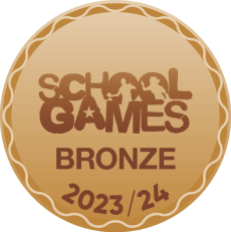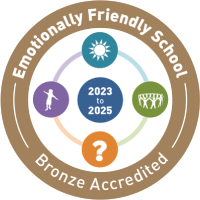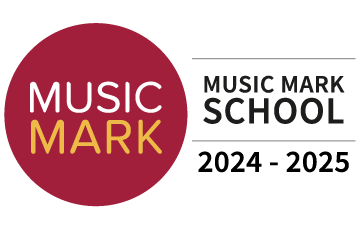English
Wardley CE Primary English Curriculum Design Statement
Subject Intent
Our English programmes follow a text and genre based curriculum model. Each year group has carefully chosen quality core texts (including fiction and non-fiction texts) which act as the stimulus to teach pupils to speak and write fluently so that they can communicate their ideas and emotions to others and through their reading and listening, others can communicate with them. Having engaging and challenging core texts allows pupils to develop a love of literature and read for enjoyment. Ensuring all pupils develop all the skills of language are essential not only in order to access the rest of the curriculum but also to participate fully as a member of society and ultimately impact on their future life chances.
To be a writer at Wardley means you will develop:
- The ability to write fluently and with interesting detail on a number of topics throughout the curriculum.
• A vivid imagination which makes readers engage with and enjoy their writing.
• A highly developed vocabulary and an excellent knowledge of writing techniques to extend details or description.
• Well-organised and structured writing, which includes a variety of sentence structures.
• Excellent transcription skills that ensure their writing is well presented and punctuated, spelled correctly and neat.
• A love of writing and an appreciation of its educational, cultural and entertainment values
To be a reader at Wardley means that you will develop:
- Excellent phonic knowledge and skills.
- Fluency and accuracy in reading across a wide range of contexts throughout the curriculum.
- Knowledge of an extensive and rich vocabulary.
- An excellent comprehension of texts.
- The motivation to read for both study and for pleasure.
- Extensive knowledge through having read a rich and varied range of texts
To be a communicator at Wardley means that you will develop:
- An exceptional talent for listening attentively so as to understand what is being said.
- A rich and varied vocabulary that gives clarity and interest to conversations.
- Clear speech that can be easily understood by a range of audiences.
- An excellent grasp of the rules used in English conversation, such as tenses and the grammatical structure of sentences.
- A highly developed ability to tell stories that capture the interest and imagination of the audience.
- A delight in initiating and joining in conversations.
- Respect for others when communicating, even when views differ.
Subject Implementation
To see what English skills are taught in each year group click on the English teaching cycle tab.
The children study a text based curriculum model. This provides the context to develop the key threshold concepts in reading, writing & communication. These threshold concepts are revisited throughout the key stages to develop and consolidate the pupils’ skills and knowledge in these areas. This curriculum promotes high standards of language and literacy by equipping pupils with a strong command of the spoken and written work and developing their love of reading.
The children are assessed by the teacher during each term against the age related expectations for these key threshold concepts.
Reading


There are two key threshold concepts in reading:
- To read words accurately
- To understand texts
Teaching pupils to decode and have speedy recognition of familiar words builds on their learning from the school’s teaching of early reading. In order to develop pupils’ comprehension skills we use a range of comprehension schemes across key stage one and two. We also develop children’s comprehension skills by ensuring the pupils read widely across fiction and non-fiction texts. This reading, both at home and in school, is supported by our reading schemes. From year two upwards the children use my Book Blog to support their reading. We also look to promote a love for reading and our library club & continual focus on the joy of reading looks to achieve this. One of our other curriculum aims is to increase the children’s vocabulary. We look to ensure that they encounter words they would rarely hear or use in everyday speech and to develop knowledge of the world in which they live. In addition, reading tasks and carefully planned questioning helps develop the pupils’ ability to answer literal comprehension as well as being able to read for meaning and show an appreciation of reading.
Writing
Writing at Wardley helps develop pupils’ competencies in the three key areas of composition, transcription and analysis/presentation. Each of the areas has a set of key threshold concepts, as shown below:
Composition
- To write with purpose
- To use imaginative description
- To organise writing appropriately
- To use paragraphs
- To use sentences appropriately
Transcription
- To present neatly
- To spell correctly
- To punctuate accurately
Analysis and presentation
- To analyse writing
- To present writing
Carefully planned, regular writing opportunities allow the pupils to develop their writing stamina, ensuring all pupils can write at length. Every week the pupils are given the opportunity to write extended pieces for a range of purposes and audiences. The pupils are taught to understand how these purposes and audiences influence the form the writing should take. The pupils are given opportunities to develop their ability to think aloud, explore and collect ideas, draft, re-read, and re-draft their writing as it forms. Pupils are also taught the importance of proof-reading and monitoring their own writing to make sure it makes sense.
Vocabulary, punctuation, grammar and spelling
Teachers work hard to enhance pupils’ vocabulary through opportunities that arise naturally from their reading and writing. Throughout the curriculum, pupils are shown how to understand the relationship between words, how to understand nuances in meaning and how to develop their use of figurative language. They are also taught how to work out and clarify the meaning of unknown words and words with more than one meaning. In addition to this, new words and phrases are introduced each week. The pupils explore the meaning of the word or phrase and begin experimenting and perfecting using these in their writing. Regular work on synonyms and antonyms also helps broaden the pupils’ vocabulary.
Teaching explicit knowledge of grammar is important to enable the pupils to have a more conscious control and choice of their language. Building this knowledge is taught through focused activities and within the teaching of reading, writing and speaking. Once the pupils are familiar with a grammatical concept their teacher encourages them to apply and explore this concept in the grammar in their own speech and writing.
Each week the pupils have a set of spellings to revise. From year two upwards the children follow the RWI spelling scheme.
Speaking and Listening
Our English curriculum reflects the importance of spoken language in pupils’ development. Spoken language underpins the development of reading and writing. The quality and variety of language that the pupils hear and speak are vital for developing their vocabulary and grammar and their understanding for reading and writing. Opportunities may include a reading for performance activity, a reading for fluency activity, a structured class debate or an extended drama activity. The key threshold concepts for communication that are developed over the key stages are:
- To listen carefully and understand
- To speak with clarity
- To hold conversations and debates
- To develop a wide and interesting vocabulary
- To tell stories with structure
English across the curriculum
Pupils get to rehearse, apply and consolidate their learning in all other areas of the curriculum. Careful planning ensures pupils continue developing all areas of English in other subjects. For example, within the history topics the pupils use their knowledge about a studied topic to write an extended piece.
Subject Impact
The impact of the subject can be seen in the progress that the pupils make. This can be seen as knowing more, remembering more and being able to do more. It is about the pupils developing their ability to think about English. It is about connecting existing and new knowledge, developing competence and making links. Assessment is both formative as children learn and summative to evaluate the gains that have been made. It is kept to the minimum necessary to be fit for its purpose.
The way we assess this progress includes the following practice (as set out in the school’s teaching & learning policy and assessment policy):
- On-going formative assessment- this includes the use of day to day assessment for learning classroom practice and feedback. It looks at the pupil’s development of key knowledge and skills. It can include short tests and quizzes. The aim is to reactivate thinking, make links and connect ideas to better embed them in the long term memory.
- Long term summative assessment - this looks at substantial conceptual & procedural knowledge. It involves the pupils drawing their learning together, for example in summative assessment tasks. It can provide a snapshot of whole school progress e.g. whole school mapping exercises.
English in the EYFS
Within our EYFS we develop children’s spoken language, reading, writing and vocabulary and aim to give children the skills and knowledge that they need to succeed, but also, and just as importantly, to endeavour to produce a love of writing and reading that will last throughout the child’s life. We adhere to the Statutory Framework of the EYFS and the guiding principles that shape practice within Early Years settings.
Reading is a key tool for life. Teaching children to become excellent readers and to enjoy reading is a major part of what we strive to do. Children are listened to when reading on a regular basis and progress tracked with books carefully matched to their ability.
Phonics is taught daily across EYFS using the main RWI principles. Within the English sessions reading is taught through phonics, but also through reading in groups and individual reading of both fiction and non-fiction books, where comprehension skills are also developed.
Writing is an essential part of what we do and can be found throughout the provision. We develop writing skills in a variety of ways such as; specific grip lessons, finding real-life reasons for children to write in order to enthuse them with purpose and engagement through well-loved texts and experiences. Children are encouraged to mark make independently, adding reason and purpose to their marks.
English and Inclusion
At Wardley we pride ourselves on supporting all pupils to reach their full potential. As with all our teaching at Wardley, we provide a suitable learning environment and use appropriate strategies at all times, which allows us to meet individual needs in all lessons. We provide all children with the tools and support to be involved and access every English lesson. This is the ‘low threshold, high ceiling’ model of teaching and learning that is set out in our teaching and learning policy.
To promote an inclusive environment in computing we will:
- Read aloud texts and information to support understanding as needed.
- Ensure all instructions are clearly communicated and broken down into smaller steps where necessary.
- Allow longer processing times for all pupils, so all have the opportunity to think about questions.
- Use Blank level questioning.
- Provide visual resources and prompts to support understanding of tasks and learning as needed.
- Offer an alternative to written evaluation (video, adult scribe) as needed.
- Promote positive relationships, well being and active engagement.
- Ensure all pupils can access the best possible expert teaching.
- Adopt a positive & proactive approach to behaviour.
- Assessment is regular and purposeful and teachers are empowered and trusted to use the information they collect to make decisions.
Trips and Visitors
At Wardley we plan trips and visitors to help enrich the English curriculum. Carefully planned trips and visits form a core part of the school’s aim to inspire and motivate pupils, allowing them to see themselves as effective writers.
How can you help at Home?
There are lots of ways you can help support your child at home.
- Talk to them! The most important thing you can do is to talk to your child and listen to them when they are talking to you. Try to extend their vocabulary range and their skill at talking in increasingly more complex sentences. For example, try to teach them alternative words for ideas, or nouns they already know.
- Read to them and always discuss the story you are reading to try to build your child’s comprehension skills and understanding.
- Listen to your child read every night. Find a quiet time to hear your child read and use lots and lots of praise to encourage them.
- Encourage your child to record their writing in a variety of ways. They may wish to keep a diary, write a story or send a postcard. Support their ideas and give plenty of encouragement!
- Support your child in learning their weekly spellings.
- Make use of your local library. Children love going to the library and having access to such a huge, diverse range of book










